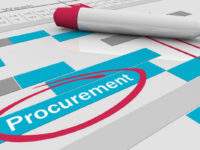The Australian Taxation Office (ATO) is reminding business owners and taxpayers not to make the mistake of double-dipping their deductions as they start to put together their tax returns.
“Around 8.4 million Australians claimed nearly $19.8 billion in work-related expenses in 2021,” ATO Assistant Commissioner Tim Loh explained. “That’s a lot of deductions so we want to make sure you get it right the first time. It’s important you claim what you’re entitled to – no more, no less.”
Taxpayers are being reminded to remember the rules for claiming different types of work-related expense, depending on the type of job, individual circumstances, and whether there are the required records to support the claim.
“While some people make genuine mistakes, we do see people trying to gain an unfair advantage by claiming incorrect or false expenses,” Loh said. “A mistake that we often see in tax returns is people claiming expenses twice. You wouldn’t double-dip your chip, so don’t double-dip your deductions.”
The ATO is highlighting the fact that it is using sophisticated data analytics to monitor for incorrect information. Any taxpayer found to be deliberately providing incorrect information will face an audit, and potentially penalties. They have also announced that they are taking a look at three key practices which are considered mistakes often committed in filing tax returns.
First is the practice of the “shortcut method” to claim working-from-home expenses and then double-dipping, claiming additional amountsfor expenses such as their mobile phone and internet bills, as well as the decline in value of equipment and furniture. The agency reminds that claiming of working-from-home expenses is all-inclusive.
The second is with regard to work-related car expenses, wherein taxpayers use the cents per kilometre method to make their claim and then double-dipping by claiming expenses separately such as fuel, car insurance, and registration. The ATO stated that the cents per kilometre rate is all-inclusive and covers decline in value, registration, insurance, maintenance, repairs, and fuel costs and such expenses can’t be added on top of the rate when calculating deductions.
Finally, the ATO will be making sure that taxpayers aren’t claiming expenses where they have already been reimbursed by their employer.
“If your boss has reimbursed your dry-cleaning costs for your uniform, but you then claim laundry deductions on your tax return, well you’re picking your neighbours’ pockets,” Loh said.















